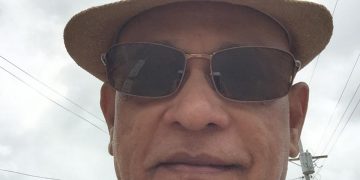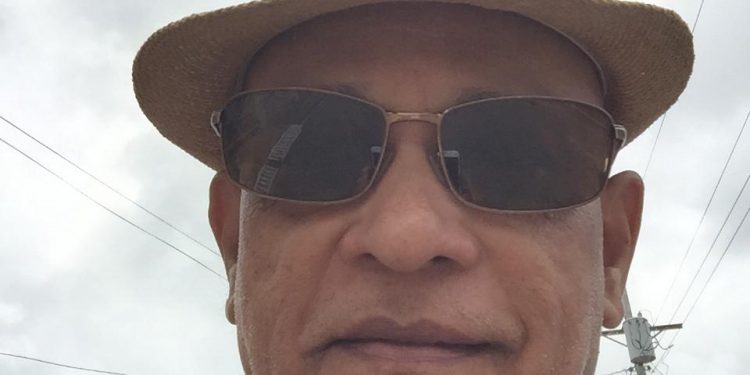Sun Yat Sen is considered the father of the Chinese Republic (Taiwan), and a “forerunner” of the Chinese Peoples’ Republic (mainland China). He believed in 3 principles 1) Nationalism, to rid China of all foreigners; 2) rights of the people; and, 3) social welfare. The Chinese in Singapore-Malaysia had taken an active part in the Chinese revolution of 1911. There was a branch of Sun Yat Sen’s Nationalist Party in Singapore. This “branch office” of the Nationalist Party gave the local Chinese a feeling of being “Inclusive” in the politics of China. Singaporeans sent money to China to help in the revolution to establish the Chinese Republic and expel foreigners. Also, this political activity caused the Singaporean Chinese to be active in the local Malay-Singapore politics.
Similarly, after twenty years of fighting for political rights for Africans and Indians in South Africa; Gandhi returned to India, and “took up and led” the Indian struggle for Independence. By the time Gandhi returned to India, he was a skilled political fighter for civil rights for the people of the colonies.
The British were very observant of how the local Chinese in Singapore-Malaysia had a tremendous effect on the politics of China. The British were concerned about the possibility of the local Chinese involvement in the local politics in Singapore-Malaysia would become more radical and anti-British. British authorities saw a direct connection between local Chinese political activities in Singapore-Malaysia; and, their political activities in the politics of mainland China. Ethnic groups’ active political involvement for their people civil rights, in one area of the world; usually influences their political involvement in other areas of the world; where their fellow ethnics live, especially in their ancestral homeland. In America, Jews, Armenians, Polish and Irish people; who are active in America, usually demand the U.S. intervene overseas to protect their fellow ethnics. This was true for both Gandhi’s political activity in South Africa, and for Singaporean-Malay Chinese. Both groups, Indians and Chinese began political activity in countries outside their ancestral motherland; then, they began to show concern for: independence; revolution; and political reforms in the motherland. Blacks in America always showed concern for Blacks in Africa and the Caribbean.
The British authorities only controlled a small portion of Chinese territory or what was referred to as their “sphere of influence.” The British could tolerate local Chinese political activity in Singapore-Malaysia; and, their support for political reform such as the overthrow of the Chinese Emperor. The British had nothing to lose in China. As a matter of fact, the British stood to gain better political concessions from a new “Republican form” of government in China.
However, India was the “Crown Jewel” in the British Empire. India was the colony, which turned Britain from regional power in Europe; into a world power, and eventually a superpower. British authorities already saw what an Indian such as Gandhi was doing in India, after he sharpened his political skills in South Africa. Under no circumstances would the British authorities want to further risk their “political hold” on India; by having overseas Indians, in the colonies, get into active politics. The natural consequence of overseas Indian political activity in the colonies would be to “shake up” the local political structures, and then turn their attention to their ancestral homeland, and possibly demand independence for India. During British rule, Guyanese Indian associations were demanding greater links between Guyana and India.
In Guyana, Indian political activities “evolved out” of the pre-dominantly Hindu organizations in that country. Cheddi Jagan got his start; and, his support from the various East Indian organizations in Guyana. Cheddi went on to form the People’s Progressive Party. In Trinidad, most early political activity emerged out of the early East Indian organizations. Later on, the emerging political leaders went on to form the Democratic Labor party. In fear of Indian political activity in the colonies, which might affect British interests in India, negatively; the British sought to “Keep Down” Indian political activity in the colonies, and support the political activities of the Black population in the Caribbean, and the Fijis Islands. In a different “Twist” to British policy, the British supported local the Singapore-Malay Chinese political activities. The British, even, allowed the local Singapore-Malay Chinese to have their own “citizenship” that was separate from Malaysian citizenship. In this way, the Ethnic Malaysians would be limited in their discrimination against the local Chinese. By having their own citizenship, the local Chinese could negotiate with the Malaysians on an equal footing.
The local Indians were not given their own citizenship. Why the local Indians leaders did did not demand their own citizenship? The Indians were naïve about the value of having their own citizenship. When independence came, the Indians could not sit with the local Chinese or the Malays, as equals, and negotiate for political rights. While the other groups had special political and citizenship rights; the Indians had none. In the Fiji Islands, the British gave all land ownership rights to the native Fijians. As agriculturalists, Indo-Fijians became dependent on renting land from the Native Fijians. Notice a pattern, Indians suffered racial discrimination in Malaysia, Singapore, the Fiji Islands and the Caribbean; largely, because of British policies of suppressing Indians economically and politically. Also, notice how the other non-Europeans quickly stepped in to discriminate against Indians.
In the Caribbean, local Europeans felt more comfortable dealing with a Europeanized African ethnic group. The Europeanized Blacks had more in common with the White Europeans, culturally and religiously. The Whites felt they could easily “Out Compete” and control the Blacks in “Business and Education.” This fear of local Indian political activity in Guyana and Trinidad caused Europeans favor Blacks in: education; official government jobs; and political activity. In Trinidad, Cola Rienzi had “Shaken Up” the local politics. Rienzi founded: the Oilfield Workers Trade Union; the All Trinidad Sugar Workers Trade Union; and other smaller trade unions. Rienzi’s grandfather, Chaithnath Tiwari fled Bihar-India, in order to escape British vengeance for participating in the Indian Mutiny of 1857. In Trinidad, his grandfather married Lakshmi, the granddaughter of a general in the army of Babu Veer Kunwar Singh, who also participated in the Indian Mutiny of 1857. When Rienzi graduated in London; he applied for a visa/permit to travel to India. The British government was not going to allow another radical Indian from the colonies to go back to India. Rienzi was denied a permit to go to India. One Gandhi from South Africa was enough for the British in India. Most likely, Rienzi would not have been as peaceful as Gandhi. Rienzi’s family history in India was more politically forceful.
Not only in politics did Indians outperform other non-European groups, when given a chance; but, they outperformed Europeans in commerce/business in Singapore-Malaysia, the Caribbean and East Africa. The Indians outperformed the Native Fijians and Europeans in the Fijis Islands. Forbes Burnham of Guyana, the Dutch in Suriname, and historian Eric Williams, all knew of the Indian’s ability to outperform all others, in business, when given the opportunity. This is the main reason why Europeans, initially favored Blacks. Europeans knew the Blacks could not compete with them in any field, especially in education and business. This fact of the Indian superior competitive skills has been proven over and over in the last 60 years of independence in the Caribbean. Caribbean Indians and Indians from India migrated to the United States in the last 40 years. Today, these Indians have become economic leaders in America. This is why Eric Williams used the Syrians, the Local Whites, and State Enterprises to check the progress of Indians.
The British had feared the Indians in business, and especially in politics with all the implications of producing another Gandhi. They used their control over the government institutions to prevent the Indians from progressing, too rapidly. The British fear of local Indians becoming a political force; and, producing another Gandhi or another Chandra Bose from the Caribbean colonies; caused the British to favor Blacks in politics and government. This is why the British kept Rienzi from going to India. The European fear of Indians in business and education; caused them to keep Indians from being educated and entering many areas of commerce. After, independence, Eric Williams and other Caribbean leaders adopted the European strategies to “halt” Indian progress in: education; business; and politics. First, the European and, then the Black leaders “Mantra” was “keep the Indian in agriculture;” then destroy agriculture and turn Indians into vagrants. History has shown that it’s difficult to keep the “Talented and Hard Working” Hindu-Indian people down.
Jai Ram, Jai Shri Guru Ramesh “Rennie” Ramracha.
Ramesh Ramracha is the founder of Hindology.
Founder and President of THE TRIGUSH (Trinidad, Guyana, Surinam, Hindus) ASSOCIATION;
Chairman of the TRIGUSH LIBRARY;
Mr. Ramracha was a lecturer at City University, N.Y;
Retired Teacher from the Dept of Ed, N.Y.C;
He holds a few graduate degrees from N.Y. area universities.

































































